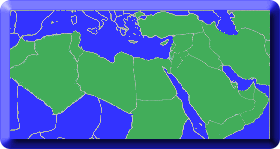
Topics in Middle Eastern and North African Economies
Document Type
Article
Publication Date
5-1-2018
Journal Title
Topics in Middle Eastern and North African Economies
Volume
20
Issue
1
Publisher
Middle East Economic Association and Loyola University Chicago
Abstract
In this paper, we classify the OECD countries plus China by means of the economic complexity approach to make a concrete connection between the current and future output structures and potential performance of countries in achieving high levels of per capita income. The aim is to identify the ranking of Turkey among various countries and analyze why Turkey has low GDP per capita according to its current production and export structure. Using export data (STIC Rev.4-3 digit) we calculate a number of economic complexity variables (export sophistication, open forest, diversification and product sophistication) for China and OECD countries, including Turkey. Then, we classify all the countries in terms of method of reflection matrix as in Hidalgo and Hausmann (2009) and identify where Turkey is located. Relying on the tools offered by the product space and economic complexity approach, the findings assert that Turkey is a diversified country, but its current production structure is specialized in less sophisticated products. Therefore, the country has a lower GDP per capita in PPP terms than its potential.
ISSN
2334-282X
Recommended Citation
COŞKUN, Nuran; LOPCU, Kenan; and TUNCER, İsmail, "The Economic Complexity Approach to Development Policy: Where Turkey Stands in Comparison to OECD plus China?". Topics in Middle Eastern and North African Economies, electronic journal, 20, 1, Middle East Economic Association and Loyola University Chicago, 2018, http://www.luc.edu/orgs/meea/
Creative Commons License

This work is licensed under a Creative Commons Attribution-Noncommercial-No Derivative Works 3.0 License.
Copyright Statement
© 2018 The Authors



Comments
Presentation of the articles in the Topics in Middle Eastern and North African Economies was made possible by a limited license granted to Loyola University Chicago and Middle East Economics Association from the authors who have retained all copyrights in the articles.